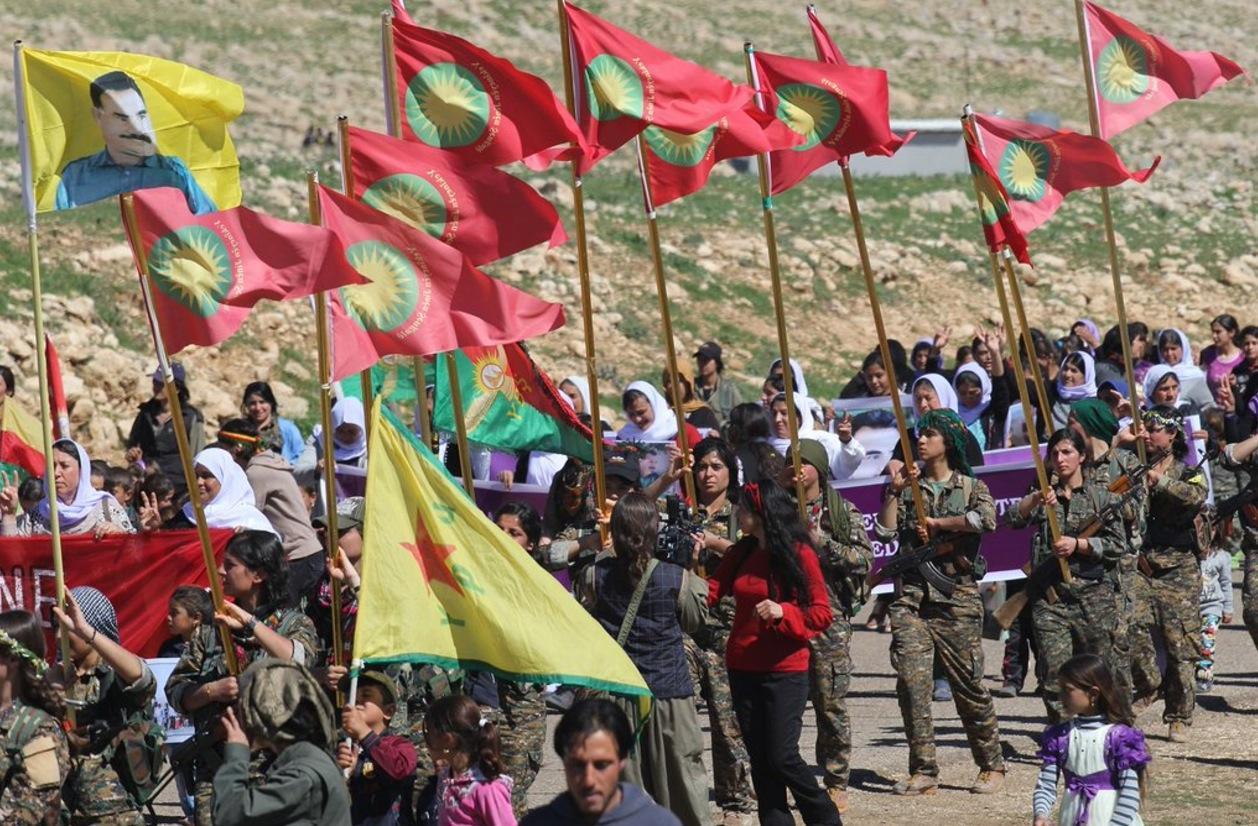All-female Yazidi militia launches operation for revenge on Isis in northern Iraq
All-female Kurdish-assisted unit declares it will be part of operation to oust Isis from strategically important town of Tel Afar

Your support helps us to tell the story
From reproductive rights to climate change to Big Tech, The Independent is on the ground when the story is developing. Whether it's investigating the financials of Elon Musk's pro-Trump PAC or producing our latest documentary, 'The A Word', which shines a light on the American women fighting for reproductive rights, we know how important it is to parse out the facts from the messaging.
At such a critical moment in US history, we need reporters on the ground. Your donation allows us to keep sending journalists to speak to both sides of the story.
The Independent is trusted by Americans across the entire political spectrum. And unlike many other quality news outlets, we choose not to lock Americans out of our reporting and analysis with paywalls. We believe quality journalism should be available to everyone, paid for by those who can afford it.
Your support makes all the difference.An all-female unit of Kurdish-trained Yazidi fighters has said it wants to be front and centre of a new attack on Isis in the north of Iraq, in order to avenge their fellow Yazidi women who have suffered at the hands of the jihadi group.
“We have not forgotten those Yazidi women sold in the slave markets of Mosul or burnt alive,” the Sinjar Women’s Units (YJS) commanders said in a statement.
“We know that the people Isis holds ... are waiting for us to rescue them. We will not stop until we liberate our women and take revenge.”
The Yazidi people – a minority population whose beliefs combine elements of Islam, Christianity and Zoroastrianism – were the targets of extreme violence by Isis when the group captured a third of Iraq in its blitz across the country in the summer of 2014.
Around 5,000 people were killed when militants stormed the town of Sinjar. Rights groups, monitors and survivors report horrific stories of sexual enslavement and executions if captured women did not convert to Sunni Islam or agree to marry Isis fighters.
The YJS was created and trained by the Kurdistan Workers' Party (PKK) forces in 2015 to strengthen the Kurdish Peshmerga and male Yazidi fighter (YBS) presence against Isis in and around Sinjar in the battle to retake the town. Their sights are now focused on driving Isis from southern Sinjar province and the nearby town of Tal Afar, military sources say.
An estimated 10,000 women in total fight on the front lines as part of the Kurdish forces in Syria and Iraq, which have been the most efficient ground troops in curbing the jihadis’ territorial expansion.
The international Kurdish resistance movement – viewed as terrorists in Turkey – is strongly committed to feminist principles: most local administrations have quotas for female politicians and officials, and women have parity with men in the military.
Their central role in the fighting has inspired Arab as well as Yazidi women to take up arms. Women who have joined the local police force and volunteered as fighters in Manbij, Syria since it was freed from Isis militants in August say the Kurdish women they met showed them the importance of defending their own rights and freedoms.
The operation to retake Tal Afar is strategically crucial because the town lies between Isis’s de facto capital of Raqqa in northern Syria, and Mosul, Isis’s last major stronghold in Iraq, which is currently under assault by a US-backed coalition of Iraqi forces.
The Tal Afar campaign is being led by the Shia militia known as the Popular Mobilisation Units (PMU), in coalition with the YBS – although the active role of Shia militias so close to the border has not been welcomed by the autonomous Kurdish administration in the north of Syria.
“While the Kurdish leaders are no friends of the Sunni insurgents, they are perhaps even more fearful of the presence of Shia militias so close to the Kurdistan Region’s borders,” Kurdish interparty relations expert Gareth Stansfield said.
Turkish Defence Minister Fikri Isik warned Baghdad last Thursday against deploying “foreign elements” to Mosul and Tel Afar.
Ankara’s own recent military intervention in the fight against Isis has had a secondary motivation of limiting any Kurdish appetite for expansion in the region.
Join our commenting forum
Join thought-provoking conversations, follow other Independent readers and see their replies
Comments